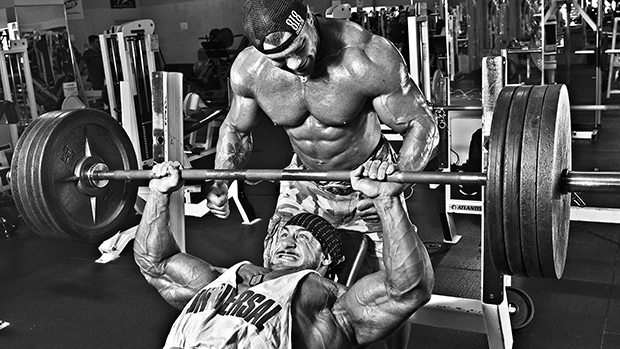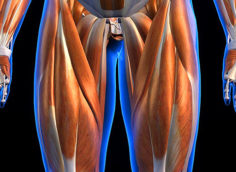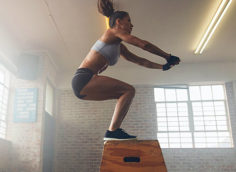Do spotters do more than keep the barbell from crushing your trachea when you get stuck under a heavy bench? This study shows they do.
The Study
Twelve recreationally trained men with at least a year of resistance training experience were recruited. The subjects underwent three testing sessions.
The first session was to establish their 1RM for the Smith machine bench press. During second and third testing sessions, they performed three sets to failure at 60% of their 1RM with 2 minutes of rest between sets. They did this under two conditions:
- With spotters there and visible before and after sets
- With spotters there but not visible
Researchers did this by putting up material to block the lifter's view of his periphery. (The subjects were told this was to eliminate distractions.) So the spotter was always there, but they didn't know the spotter was there for part of the study.
The bench pressers were also told the two testing sessions were to determine test-retest reliability of a training protocol, so as to blind them to the real purpose of the study. Total number of reps, total weight lifted, RPE (rate of perceived exertion), localized RPE, self-efficacy ratings, and lactate were measured during both trials.
The Results
When the lifters knew the spotters were there they performed on average 11.2% more reps, which led to an equivalent increase in total weight lifted. All but one subject (who performed the same each time) did more reps and lifted more total weight (volume) when they knew the spotters were there.
The increase ranged from 5.3% to 30.7% more reps. Lactate levels were significantly greater in the spotter condition. RPE was significantly lower in sets 1 and 2, and a bit lower in set 3. Self-efficacy was significantly higher in the spotter condition.
What Does This Mean?
There's a massive psychological component that boosts performance when in the presence of people. That could be from a boost in self-efficacy, wanting to avoid embarrassment, or wanting to impress others. It doesn't matter. There was no strength adaptation that accounted for this effect. It was the mind.
Working out with people present will allow you to push yourself further with less effort than performing the same exercise alone. So grab a few friends and go lift some weights.
Reference
- Sheridan, A, Marchant, DC, Williams, EL, Jones, HS, Hewitt, PA, and Sparks, SA. Presence of spotters improves bench press performance: a deception study. J Strength Cond Res XX(X): 000-000, 2017





